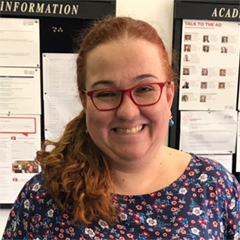The day Glenn Greenwald came up in a conversation that was not about politics — or was it?
“What do you think of Glenn Greenwald’s Portuguese?”
That question came out of the blue to me, but there I was, chatting to an air traffic controller before we started his English proficiency interview about a third person’s Portuguese language proficiency.
I thought of a video I saw after the first Vaza Jato news: “Well, I find his pronunciation a little difficult to follow.”
“Yes, it’s heavy.”
“Especially because we’re not used to listening to a foreign accent in Portuguese, I think.”
“That’s true. But you can understand him, right?” he shot at point blank.
I knew where he was going and smiled, “Definitely. He makes all kinds of mistakes, with grammar and vocabulary too, but I can understand most of what he says, yes.”
“Yeah, we may resist understanding if we have problems with the person…” (I have nothing against the award-winning journalist, but I didn’t bite and let him continue) “…but the point remains that he can be understood.”
“Hence,” I concluded, “if Glenn Greenwald were an air traffic controller, he might be a level 4 if the aeronautical community could also understand him.”
He seemed pleased and we started his oral proficiency interview.
****
Needless to say, on the backburner, my mind was racing with teaching ideas. What if we presented Brazilian students with foreigners speaking Portuguese at the beginning of the course, as part of the initial needs analysis? Or in the middle of the course, when we give them feedback on their development?
Feeling it in our mother tongue may make it all more concrete. On the one hand, like the air traffic controller I tested, analyzing foreign speech in Portuguese might help students lower their anxiety levels and even expectations: “Ok, I can speak with a heavy accent and make grammar and vocabulary mistakes and still be understood.” On the other hand, there will be those students who don’t think Glenn Greenwald’s (or whoever’s) Portuguese is enough for them, and will let us know that they expect to have a more sophisticated command of the English language. And that’s fine, too, as long as we are all clear on the final goals and the hard work it takes to get there.
In short, maybe students can go farther when speaking about foreigners’ Portuguese than they can with CEFR descriptors or other abstract and subjective terms such as “heavy accent” or “complex grammar”.
****
“And he lives in Brazil.”
“Yes, he does. Married to a Brazilian, highly educated, and all that.”
“Language learning isn’t easy.”
“No, not at all easy. Possible, though.”






